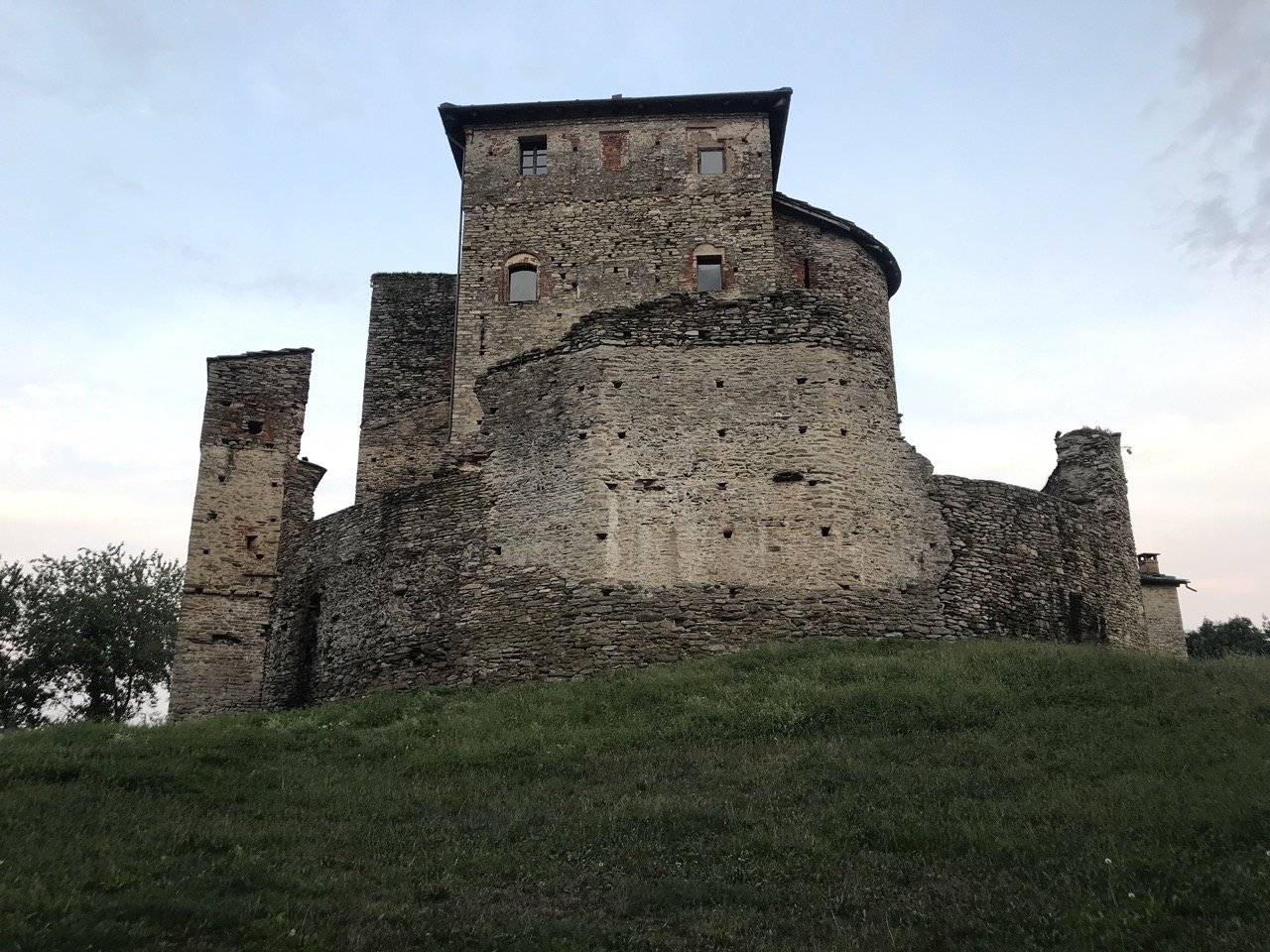Castello di Bagnolo (Cuneo, PIEMONTE)
Ancient Savoy Kingdom Rarities.
North of Cuneo, tucked up in the foothills of Monte Viso, Castello di Bagnolo was originally a much larger castle in the 12th century which helped guard the Savoy dynasty, is home to historic frescoes, and became a hiding place for Jews during WWII. Today it is gently patinated by time, and primarily run as an agriturismo that also makes a small amount of wine. Hilario Isola is the current generation of the estate, having trained first with Elio Altare in Barolo, he has reclaimed 2 hectares of the family’s old defunct vineyards that have 70-90 years of vine age.
Their house Rosso is called "Set," the local dialect for "Sette," (as it's made from an Abbatucci-esque list of seven indigenous grapes: Neretta Cuneese {Freisa Grosa}, Neretto Duro {Uva’d Galvan}, Avanà, Avarengo, Neiret Pinerolese {Chatus}, and Valenga, along with the more widely known Barbera d'Davi, and Dolcetto).
Hilario also makes a tiny amount of skin-maceration white from the nearly extinct, Blancvert variety native to Savoy, named “Arbi” for the large chestnut containers historically used here for harvest, ARBI does a natural maceration on the skins, but after several years of this ancient Etruscan method he now controls the temperature (between 22-26 C) giving a slight amber color. Bottling without any SO2, a light filtration helps to stabilize the wine and retain the unique raspberry, currant, and rosehip aromas.
Victoria and I both fell in love with Bagnolo when we were planning our wedding in Piemonte, and it took us the next four years to persuade them to let us import it to the US. From the 2016 vintage, they had just 90 cases available for us to import. These rare indigenous varieties offer deliciously humble, easy-drinking wines that are made for the table, but as Victoria says you can also taste the aristocratic pedigree, offering an almost stuck-in-time quality that speaks to the unique place where they’re grown.


